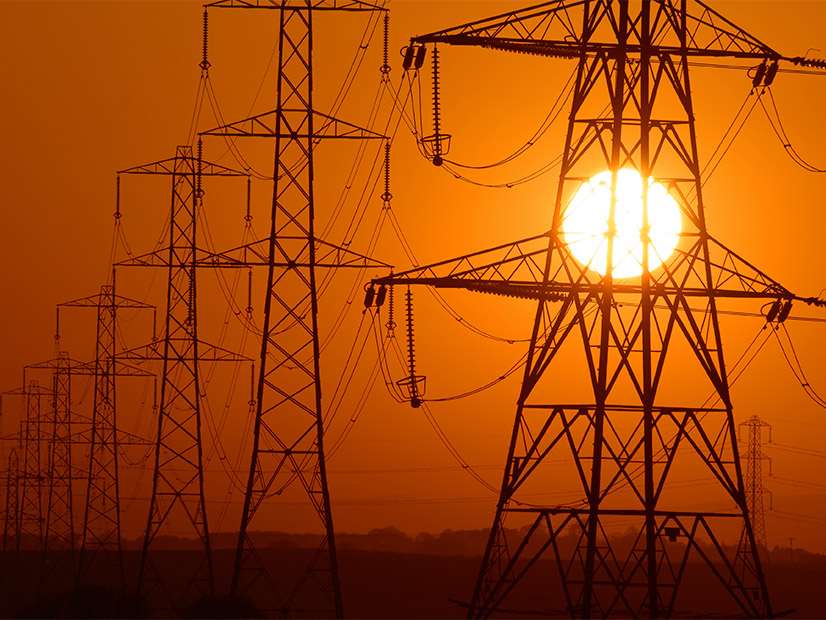The D.C. Circuit Court of Appeals on July 9 directed FERC to apply the Mobile-Sierra doctrine when it reconsiders a series of 2022 orders requiring Western wholesale electricity sellers to refund a portion of the high prices they earned during an August 2020 heat wave.
At issue in the case — and in the related FERC orders — is the commission’s longstanding policy of maintaining a “soft” price cap for short-term electricity sales in the West to prevent the exercise of market power (22-1116). A product of the Western energy crisis of 2000/01, the policy requires sellers to justify the costs behind power prices exceeding the soft cap of $1,000/MWh, or refund any amount earned above the cap.
The case dealt specifically with surging prices associated with tight supply conditions stemming from triple-digit temperatures occurring over Aug. 18-19, 2020, when CAISO struggled to prevent the rolling blackouts it was forced to order Aug. 14-15 — the first such blackouts in nearly 20 years.
Wholesale prices at Arizona’s Palo Verde hub on the Intercontinental Exchange (ICE) hit records of $1,515/MWh on Aug. 18 and $1,750 on Aug. 19. The hub’s average price from June to August of that year, excluding the August price spike, was $52/MWh, according to filings Southern California Edison and Pacific Gas and Electric made with FERC to protest the prices.
Over the course of 2022, FERC issued a series of decisions rejecting the justifications of sellers who sold electricity at those levels during the period, finding that the ICE index prices reflected scarcity conditions and that the selling companies had failed to justify their premiums based on costs.
Those decisions rejected the argument by sellers that FERC should apply the presumptions from the 1956 cases United Gas Pipeline v. Mobile Gas Service and FPC v. Sierra Pacific Power — or Mobile-Sierra doctrine — to the sales and hold that the contracts were freely negotiated between the buyers and sellers and did not harm the public interest. Instead, the commission determined the Mobile-Sierra presumption did not prevent it from “enforcing the requirement that sales in excess of the WECC [or Western] soft price cap must be justified and [we]re subject to refund.”
The commission also held that it had the authority to enforce the soft cap through refunds without conducting a Mobile-Sierra public-interest analysis because the soft cap was part of the sellers’ filed rate, a finding reinforced by the 2002 “Soft-Cap Order” establishing the caps in the West.
In its decisions, the commission also rejected requests by some sellers to raise the West-wide soft cap to $2,000/MWh, in line with the cap in place in CAISO, saying that was out-of-scope for the rulings.
Mobile-Sierra Necessary
Dozens of sellers were affected by the decisions, including PacifiCorp, Shell, Mercuria, Tenaska, Tucson Electric Power, Uniper Global Commodities North America, Tri-State Generation and Transmission Association, and Brookfield Renewable Trading and Marketing. (See FERC Tells PacifiCorp to Refund Premiums, Sellers Urge FERC to Raise WECC Soft Price Cap and FERC Orders More Refunds from 2020 Western Heat Wave.)
Then-Commissioner James Danly dissented in each of the orders, questioning the commission’s authority to abrogate bilateral contracts reached between buyers and sellers in a time of tight supply conditions. Danly wrote that FERC instead should have applied the Mobile-Sierra presumptions to the contract and found that the public interest was not harmed by upholding them.
The sellers once again used that line of reasoning in their appeal to the D.C. Circuit, contending FERC erred by not conducting a Mobile-Sierra analysis before ordering the refunds — an argument that swayed the court in its decision to remand the orders back to FERC.
“We agree with the sellers that the commission should have conducted the Mobile-Sierra analysis prior to ordering refunds, and so we grant the sellers’ petitions for review, vacate the orders they challenge, and remand for further proceedings,” the court wrote. “Because of that holding, the commission necessarily will need to change its refund analysis for above-cap sales going forward, and any decision by this court on the validity of that framework would be purely advisory.”
In its ruling, the D.C. Circuit said FERC’s arguments against administering a public-interest analysis before enforcing refunds “fail for a simple reason.”
“Even assuming that the Soft-Cap Order was incorporated into sellers’ tariffs and contracts, the commission did not displace the Mobile-Sierra presumption in the Soft-Cap Order itself, and so that presumption continues to apply to the Sellers’ contracts,” it found.
“More specifically, nothing in the Soft-Cap Order established that the Mobile-Sierra doctrine would not apply to the commission’s review of any above-cap rates,” the court continued. “As such, the Soft-Cap Order left intact the commission’s burden of overcoming the presumption that ‘a freely negotiated wholesale-energy contract meets the “just and reasonable” requirement imposed by law.’”
The court went on to say that the soft cap “is best viewed as a means for flagging for the commission contracts that may warrant public-interest analysis.”
“The requirement that sellers ‘justif[y]’ their above-cap prices, in turn, facilitates this review by obligating sellers to supply information showing that the conditions for the ordinary application of the Mobile-Sierra presumption (e.g., the absence of market manipulation) were in place at the time of the above-cap sale,” the court concluded.
‘Consumers’ Petition Rejected
The court additionally rejected a petition by the California Public Utilities Commission and SCE (called the “consumers” in the ruling), which contend that FERC committed errors in its refund calculations that would lead to higher electricity prices in the future.
“We have no occasion to engage with the merits of the consumers’ challenge because it is moot,” the D.C. Circuit found, noting that the petitioners had questioned the way in which FERC had calculated the refunds but that the court already determined the commission had “erred in ordering refunds in the first place without applying the Mobile-Sierra public-interest analysis.”




